Bunny Wailer—One of the Three Most Important Third World Musicians Part II
A CRITICAL LOOK AT HIS EARLY SOLO CAREER 1976-1983 Part 2
In part 1 of our Bunny Wailer retrospective we followed his life from a young boy to age 30 and covered his first two solo albums, Blackheart Man and Protest. Now we will delve into his next eight albums somen of which were award winners.
As mentioned in part 1, Bunny's debut album, Blackheart Man, is considered by most every music critic to be one of the ten greatest reggae albums of all time. The follow up, Protest, although good, was a bit of a let down. That all changed with Bunny's third effort, Struggle (1979), which had him back in the groove.
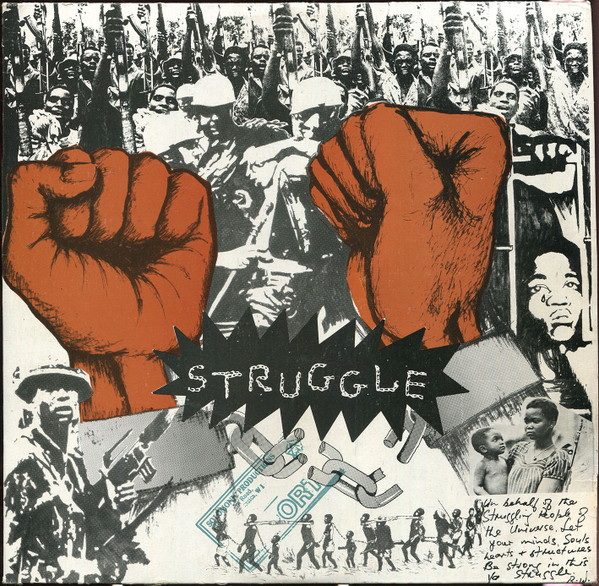 Originally released on Solomonic label in 1978.
Originally released on Solomonic label in 1978.
The album begins with one of the most sublime songs I've ever heard, "The Old Dragon". What is most unusual about "The Old Dragon" is that for many years Bunny chose to open all of his live shows with this song and it is a song about Satan! "Now this is the history of one whose beginning was not in the womb/ Nor whose ending in the grave/ Lucifer, the old dragon.."
Imagine hearing Bunny live and this magnificent song opens the show. The question most people ask next is "Why would this beautiful, spiritual man choose a song about the devil to open each concert?" Bunny has stated it is better to acknowledge the devil and give him his due right up front rather than pretend he doesn't exist and have him sneak up on you later and cause considerable harm. I theorized (and it's nothing more than that) Bunny might have conceived the idea of beginning every show with a song about Satan from an incident that occurred during a live Wailers' show in late 1964. A power failure hit the area and the room was plunged into blackness. Patrons started throwing bottles, smashing chairs and stage equipment and a full scale riot ensued. The musicians hid in a bathroom backstage. This terrifying event provided the inspiration for some Wailers' songs like "Jumbie Jamboree". The word "jumbie" means ghost, or "duppy" and if a person is called a "duppy" it means he has no soul or feelings. So I'm just thinking if this event unleashed such awful negative vibes, perhaps Bunny thought it's better to acknowledge the cause of all this darkness right at the outset. Anyway, it's just my idea. What's important is this stunningly beautiful song.
I was fortunate to see Bunny on his second tour of America at Radio City Music Hall here in New York City in 1989..Third row center seats, the closest I've ever been in a large venue because I went to the box office the first day tickets went on sale. When he started the show with this magnificent song, it was absolute heaven to be there. Yes, a song about Satan put me right in heaven.
"The Old Dragon"
"Once upon a time in Holy Mount Zion
Where have always been one perfection
All Jah children they are gathered around Jah throne
Chanting songs and songs of praises
Then one a certain one called Lucifer
Where envy greed and lust for power
And there were others who were aspired by his ways
He had accomplices who were aspired by his ways
Dress back Satan! You can't get Jah children no more
There was a man cry in a Holy Mount Zion
Which caused the casting out of the host of Satan
Who then came down here as the serpent, upon, this earth
With his splish his sorrows and his woes
Then he sought the soul of Adam
And in Eve he put the sting of evil
And all nations did learn of his ways
All nations tongues of nations did learn of his ways
Dress back Satan! You can't get Jah children no more
Now is the same the same old dragon, yeah
That old dragon Lucifer and Satan
Who have caused Jah little children to go astray
With his presumptions, his scornful and dirty ways
He is appointed for a time and season
There to rule over and to deceive all nations
And then he shall be put away
Then after all these things, he shall be put away
There shall appear
The mighty angel, trodding out of Zion
And having their key to the bottomless pit
And the great chain of lightning in his hand, oh yes
Then he shall grab hold on the dragon
Grab hold of him Lucifer and Satan
And he's gonna bound him bound him bound him
For I-ver more
And he's gonna bound him bound him bound him For I-ver more
And he can never get away never get away
Never get away never get away
Never get away never get away
Never get away"
"Power Struggle"
(All seven tracks on Struggle are excellent. Bunny addressed these "Power Struggle" lyrics to Jamaica which has a history of internal violence but his words couldn't be more relevant in today's world. "It's the peoples' cry/Oh they sigh and sigh and sigh/ You Better stop this power struggle/It's causing the nation too much trouble/ Endangering the lives of innocent ones/ It's bound to bring a revolution")
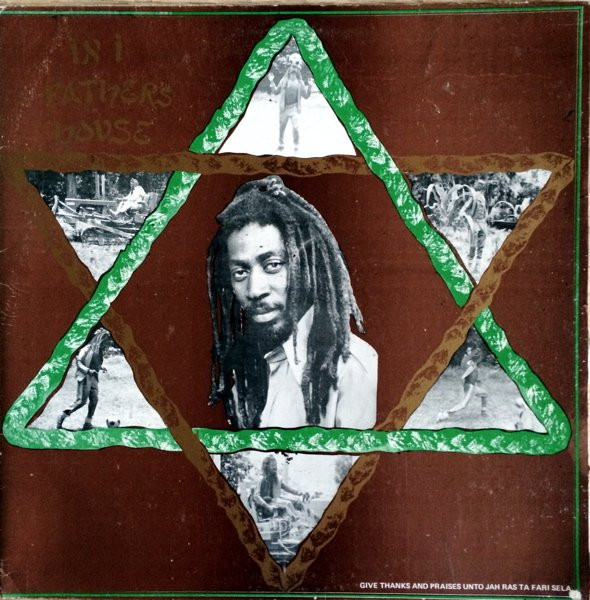 Originally released on Solomonic label in 1979.
Originally released on Solomonic label in 1979.
Containing only six tracks, Bunny's fourth reggae LP, In I Father's House, maintains the high standards of Struggle. It was to be one of the last roots albums he recorded until Liberation in 1988. The album opens with one of Bunny's most successful songs, "Roots Radics Rockers Reggae"..(One of the world's pantheon punk bands, Stiff Little Fingers, from Ireland, cut a rousing uptempo cover of this song on their album Go For It in 1981.Check it out.)
"Roots Radics Rockers Reggae"
Ever wonder what reggae music is all about? Listen to this beautiful stanza of "Roots Radics Rockers Reggae".
"Now the roots are the inspiration of the people oh yes
And without them all would be gone astray
I can hear the voices of the radicals in the cities
Grab on, brother! To the rock I said
Rastafari, he leads the way
And reggae is the music which sends a message
Tells of history, the truth, and the right
Leading the cause of the innocent ones
To comfort the afflicted and to keep them from wrong
Let the aged be protected and the infant be strong yes oh yeah, yeah, yeah"
"Wirly Girly"
(Bunny in a playful mood, describing a type of fun loving teenage girl in Jamaica. Just another wonderful song that made me fall in love with reggae music.)
"When them young girl of eighteen
Them flirty flirty, flirty
They take you for a ride if you know what I mean
Round the wirly wirly
Them just rock uptown
And a rock downtown them a whiny, whiny, whiny
And anywhere a favorite song is playing in town
You've got to find it, find it, find it
You call them wirly wirly girlies
'Cause them don't usually wake up early"
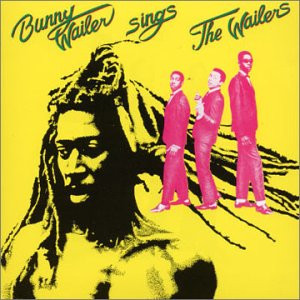 Originally released on Solomonic in Jamaica and Mango in U.S.A. in 1980
Originally released on Solomonic in Jamaica and Mango in U.S.A. in 1980
Taking inspiration from his past with the Wailers, Bunny recorded the first of three albums of Wailers' songs with Bunny Wailer Sings The Wailers. On the next two he seemed a bit more adventurous in his interpretations of these songs but this is a fine effort and completely successful, in large part to the rhythm section of Robbie Shakespeare on bass and Sly Dunbar on drums. Sly and Robbie ruled supreme for many years with their own albums and backing many bands, the most noteworthy being Black Uhuru. Robbie's bass is huge on this LP and is a joy to hear. And of course, Sly is wonderful, as always.
"Dancing Shoes"
(In part 1 of this article we heard Bunny sing the original Dancing Shoes from 1966. This is his updated version 14 years later.)
"Burial"
(Originally one of the Wailers' great rock steady songs, "Burial," gets a rub a dub makeover with Robbie's wickedly appealing bass line leading the way. Big chune here!)
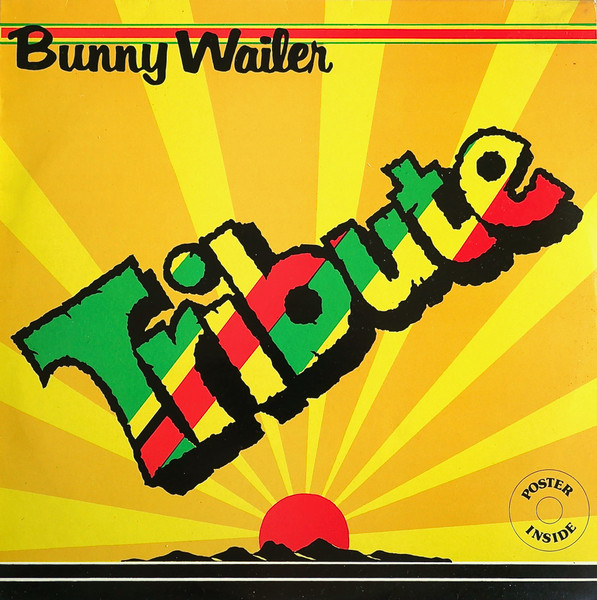 Originally released on Solomonic in 1981
Originally released on Solomonic in 1981
The second LP with Bunny's looking back on his Wailers years, Tribute was released the same year Bob Marley died. Of the ten songs, only one, "Soul Rebel," is from the 1960's. All the rest are from the 1970's and were originally sung by Bob, as opposed to the songs on Bunny Wailer Sings The Wailers where originally Bob, Peter and Bunny all first sang lead on them. So here, Bunny gets a chance to dig into Bob's songs and make them his own. He does just that, with impassioned singing. As mentioned in part I, Bob and Bunny grew up in the same house and went through the same early experiences and influences so these songs must resonate deeply with Bunny. Even if you've heard Bob sing them many times, do yourself a favor and hear how Bunny sings them. The backing is by both Sly and Robbie and the best band in Jamaica at the time, Roots Radics.
"Time Will Tell"
(First sung by Bob Marley on Kaya LP).
"Jah will never give the power to a baldhead/ Run come crucify the dread"
Bunny's unwavering faith in Rastafari and Jah (as the living God Haile Selassie) has guided him his whole life. In an interview by John Jeremiah Sullivan in GQ magazine in 2011.Bunny told how he became a Rasta. Remarkably this occurred when Bunny was only 4 years old.
"I knew of Rasta from I was a little child," he said, "but the Blackheart Man was the name given to the Rastaman, to make every youth stay far from that individual, 'cause he's likely to cut your heart out and eat it and all that kind of stuff. And when you disobeyed or did anything that wasn't appropriate within the family, they would say, 'If you don't do this here, I'm gonna call the Blackheart Man on you'.
In Kingston, in Trench Town, when kids were late to school, they used to run by the gullies to get there faster. Rastas lived in the gullies. The city gave them waste grounds for making their camps. "The Blackheart Man lived in the manhole," Bunny said. "Check that—that's Rastaman."
Sometimes one of these dreadlocked mystics would come out of his shanty "to fill his little butter pan with water," and when the children saw him, they'd run the other way. Bunny remembered a couple of his friends getting cut and bruised, they ran so fast to get away
But for some reason—maybe it was the influence of Joe Higgs—this youth, Neville, started asking himself why he ran. He'd noticed that as he and his friends ran from the Rastas, the Rastas were calmly walking back to their holes. "So when him comes out, I took a brave heart, and he just look at me as if, 'Aren't you running, too?' "
Bunny questioned the man, asking what made him live like he did. "I find out he has an intellect, someone like a lawyer or a doctor when he opened his mouth," he said. "Then he tells me that Haile Selassie the First inspired him to walk this route. 'Seek first the kingdom of Jah, and all other things shall be added.' Rastaman. Not me hear them thing out no Bible—Rasta taught them things, and me understand immediately."
"Redemption Song"
(First recorded by Bob Marley and the Wailers on Uprising LP)
Bunny's cover is truly impassioned.
Tribute is a complete success, with not one weak track out of the ten. Tribute was resequenced with two added songs, "Bellyful" and "Rebel Music" and released internationally as Time Will Tell -- A Tribute To Bob Marley album on Shanachie in 1990, giving Bunny his first Grammy Award.
If Bunny's first album, Blackheart Man, is one of the ten greatest roots reggae albums, then Rock 'N' Groove is one of the ten greatest dancehall albums. All seven tracks are outstanding and I challenge anyone to keep from dancing when this record plays. Chock full of classic songs like "Rootsman Skanking," "Jammins," "Cool Running," and "Ballroom Floor," Rock 'N' Groove finds Bunny at his most infectious riding these rhythms.
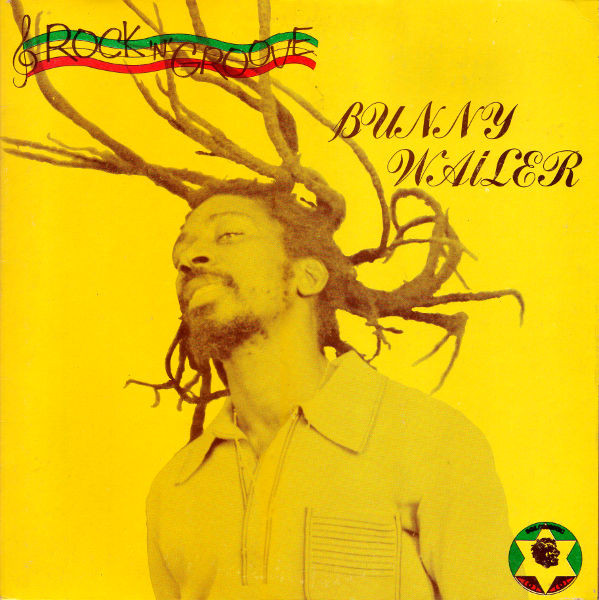 Originally released on Solomonic in 1981
Originally released on Solomonic in 1981
"Ballroom Floor"
"Hey, no one didn't tell you as to roam the streets
But that's what happen when your rub-a-dubbin' get sweet
You lock so tight you don't even know when it's morning
The music so right you don't even care about the dawning
How does it feel to have been on the ballroom floor?
Or do you feel like you could-a rock some more?"
"Jammins"
(Classic dancehall song with Bunny at his peak.)
Rock 'N' Groove was reissued by Shanachie in 1986 as Rootsman Skanking with three singles added, including "Gamblings," a song that is a personal favorite of mine. "Gamblings" paints a picture of Bunny unfortunately losing money at cards, dominos and horse racing. I had the good fortune (or maybe it was very bad fortune since it led to many years of my losing at the race tracks) of placing my first ever bet in 1971 at an OTB (off track betting) location here in New York City. It was the Belmont Stakes. I placed a $2 win wager on Pass Catcher, because when I was in camp as a kid my counselor was always talking about a jockey named Walter Blum. I guess he was a degenerate gambler. Well, Blum was on Pass Catcher that day so I bet the horse without knowing anything about horse racing and Pass Catcher beat the big favorite Canonero who had already won the Kentucky Derby and The Preakness. Pass Catcher paid $72 to win on a $2 ticket. I was on my way (to empty pockets) just like Bunny in this song.
Note -- Although the Shanachie reissue does add three extra songs, it does contain different shorter mixes of some of the songs.
"Gamblings"
(Bunny takes what little money he has left after losing at cards and dominos and goes to the race track. But just as his horse is about to win "the jockey pulled it up back." )
Bunny's next release was a departure for him. Hook Line & Sinker is not reggae proper but rather a blend of New Orleans funk, Memphis soul, disco and pop. It was poorly received by buyers expecting another excellent reggae release and Bunny was accused of selling out to commercialism. Some love it, some hate it. There are four songs from the album on YouTube for those who might want to hear this unusual LP.
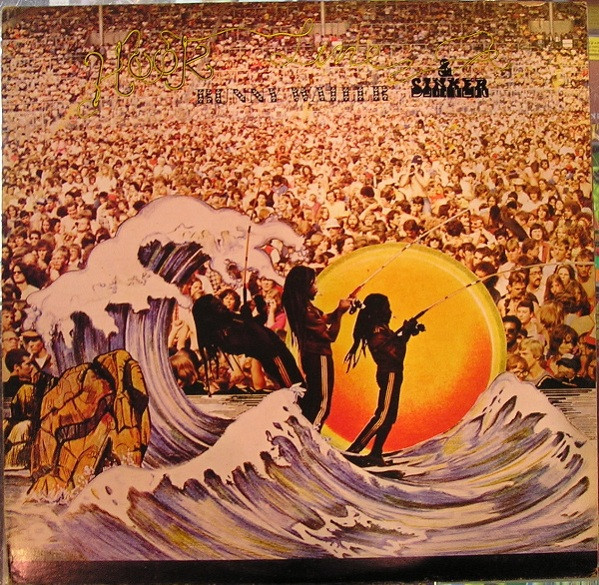 Issued on Solomonic in 1982. It has not been released on CD
Issued on Solomonic in 1982. It has not been released on CD
Next came a live album recorded at the "Youth Consciousness" Reggae Festival PT 1, National Stadium, Kingston, Jamaica Christmas day 1982. The song selection could not be better, although there are only seven songs, the playing is excellent but the sound is terrible. Skip this one and go for the live DVD in stereo of Bunny's top notch performance at Madison Square Garden on August 18,1986 in New York City. (The video is posted on YouTube if you want to hear before buying.)
 Originally released on Solomonic in Jamaica, U.S.A. and U.K. in 1983
Originally released on Solomonic in Jamaica, U.S.A. and U.K. in 1983
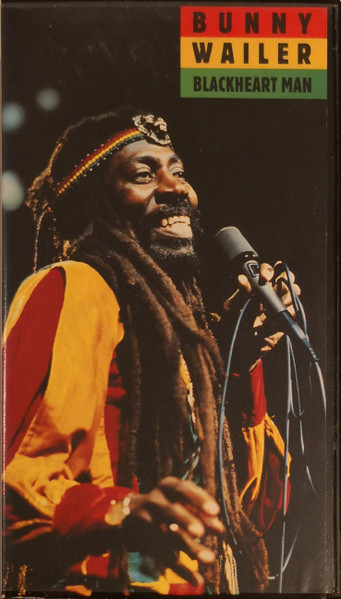 DVD first released in 1986.
DVD first released in 1986.
The last album in our survey, Roots Radics Rockers Reggae is an international release of In I Father's House with the addition of two excellent tracks, "Cease Fire" and "The Conqueror," which we'll hear.
This time Shanachie chose to keep the original mixes on In I Father's House, thank heaven. So if it's a choice between In I Father's House and Roots Radics Rockers Reggae I would opt for the latter because of the additional tracks.
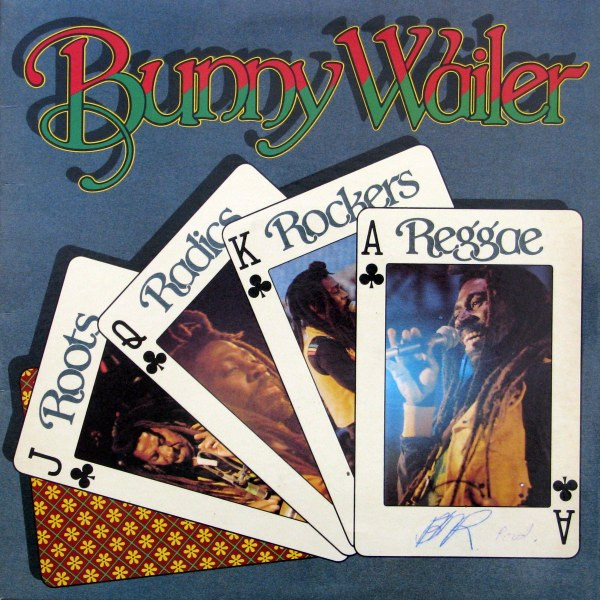 Released on Shanachie in 1983.
Released on Shanachie in 1983.
"Cease Fire"
"The Conqueror"
Awards and honors.
Bunny won the Grammy Award for best reggae album three times; in 1991 for the album Time Will Tell: A Tribute to Bob Marley, in 1995 for Crucial! Roots Classics, and in 1997 for Hall of Fame: A Tribute to Bob Marley's 50th Anniversary
Crucial! Roots Classics is a great way to start listening to Bunny. A collection of 80's singles, the selection was chosen by someone obviously into Bunny's roots and culture songs and the selection could not be better. Only on CD but don't fret, it sounds fine. The opening song, "Boderation", is one of his finest efforts.
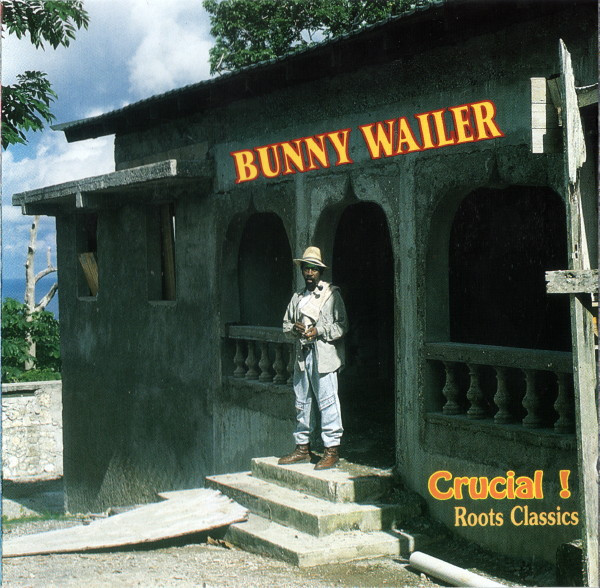 First released on Shanachie in 1994
First released on Shanachie in 1994
"Boderation"
In August 2012, it was announced that Bunny Wailer would receive Jamaica's fifth highest honour, the Order of Jamaica.
In 2016, he played a month-long 'Blackheart Man' tour to celebrate the 40th anniversary of his 1976 album.
In October 2017, he was awarded the Order of Merit by the Jamaican government, the nation's fourth-highest honour.
In October 2019, a commemorative blue plaque dedicated by the Nubian Jak Community Trust honoring Bob Marley, Peter Tosh, and Bunny Wailer was placed at the former site of Basing Street Studios in London, where Catch a Fire and Burnin' were completed.
In November 2019, Wailer received a Pinnacle Award in New York from the Coalition to Preserve Reggae.
Where to Start Listening to Bunny Wailer Solo Albums
Blackheart Man is a must. Then Struggle, InI father's House, Rock 'N' Broove, Roots Radics Rockers Reggae and Crucial! Roots Classics are all highly recommended. The three Bob Marley cover albums, Bunny Wailer Sings The Wailers, Tribute or the resequenced Time Will Tell and Hall Of Fame -- A Tribute To Bob Marley's 50th Anniversary are in a separate category for some. If you want to hear how Bunny interprets these famous Marley songs, you will certainly love these three albums. But if you think Bob's originals are perfect as they are and don't need to be covered then stick to all the other albums that feature Bunny's own compositions.
Albums and Videos Referenced in Parts 1 and 2.
Original and early pressings of all the albums below are not expensive and easy to find on Discogs or in a store with a good reggae selection.
Blackheart Man
Protest
Struggle
In I Father's House
Bunny Wailer Sings The Wailers
Tribute
Rock 'N' Groove
Hook Line & Sinker
Live!
Bunny Wailer Blackheart Man -- DVD
Roots Radics Rockers Reggae
Rootsman Skanking
Time Will Tell -- A Tribute To Bob Marley
Crucial! Roots Classics
Hall Of Fame -- A Tribute To Bob Marley's 50th Anniversary


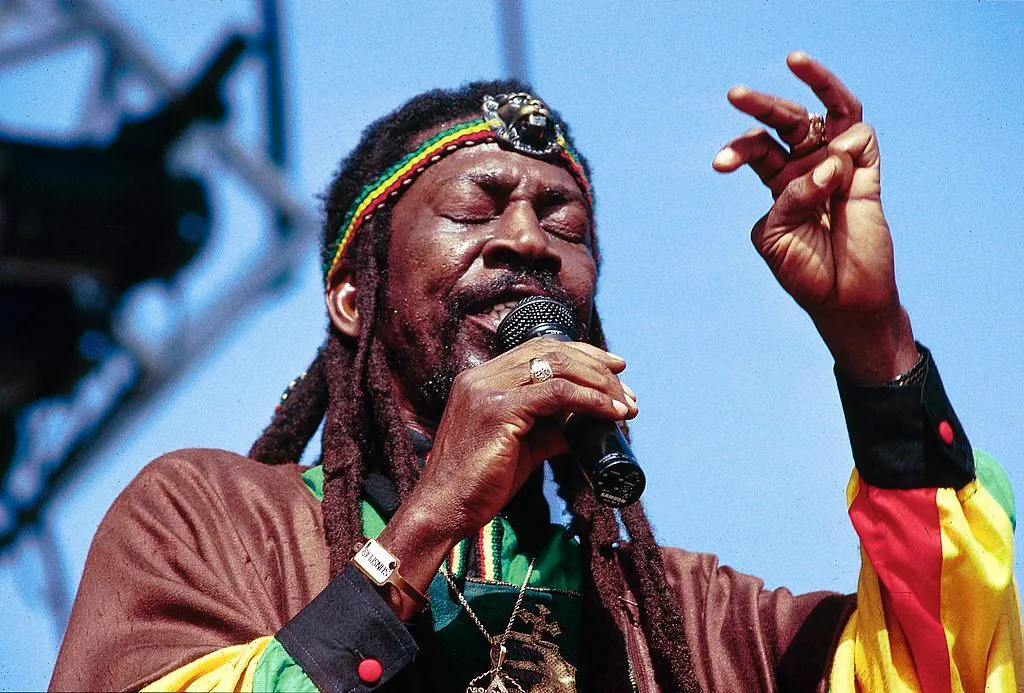





































.png)








